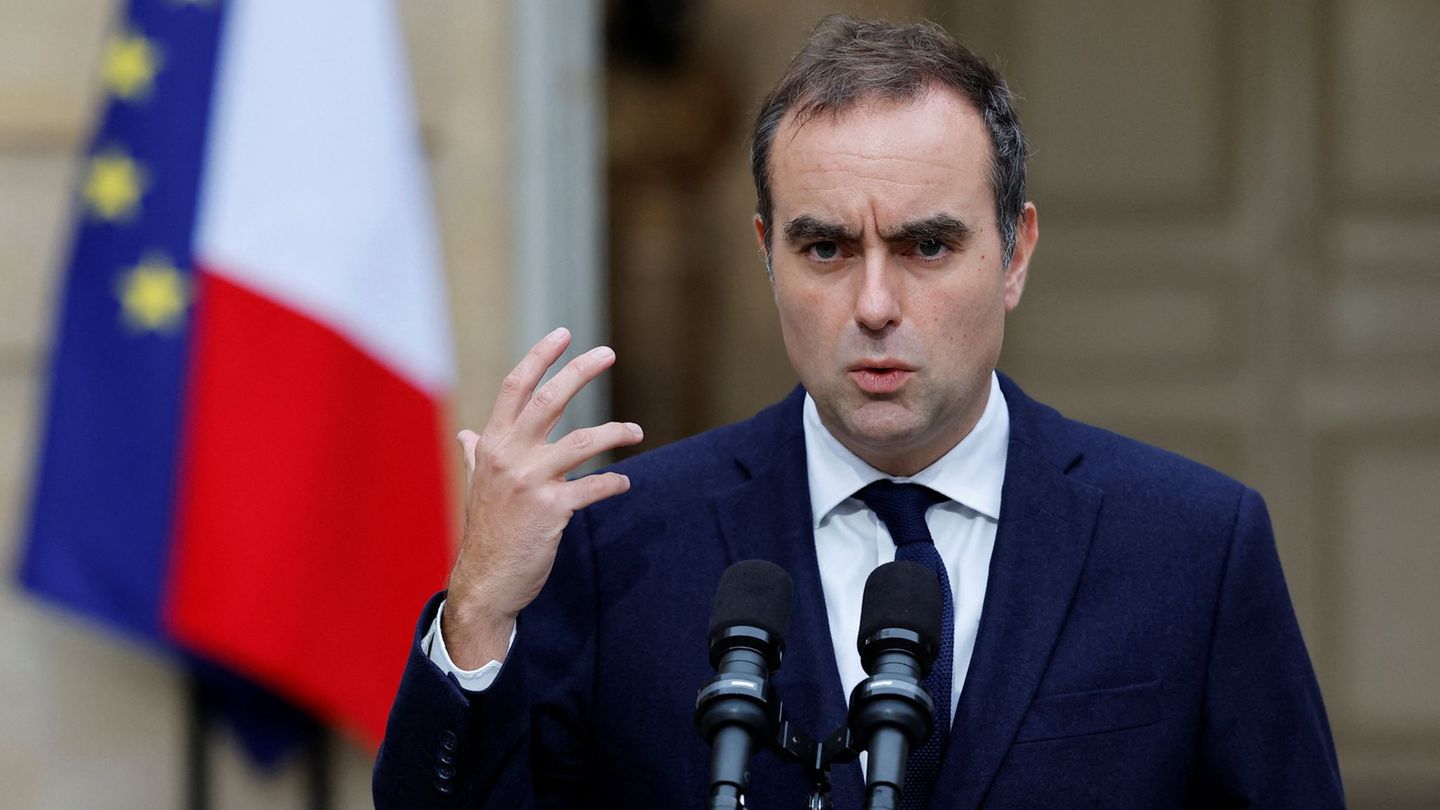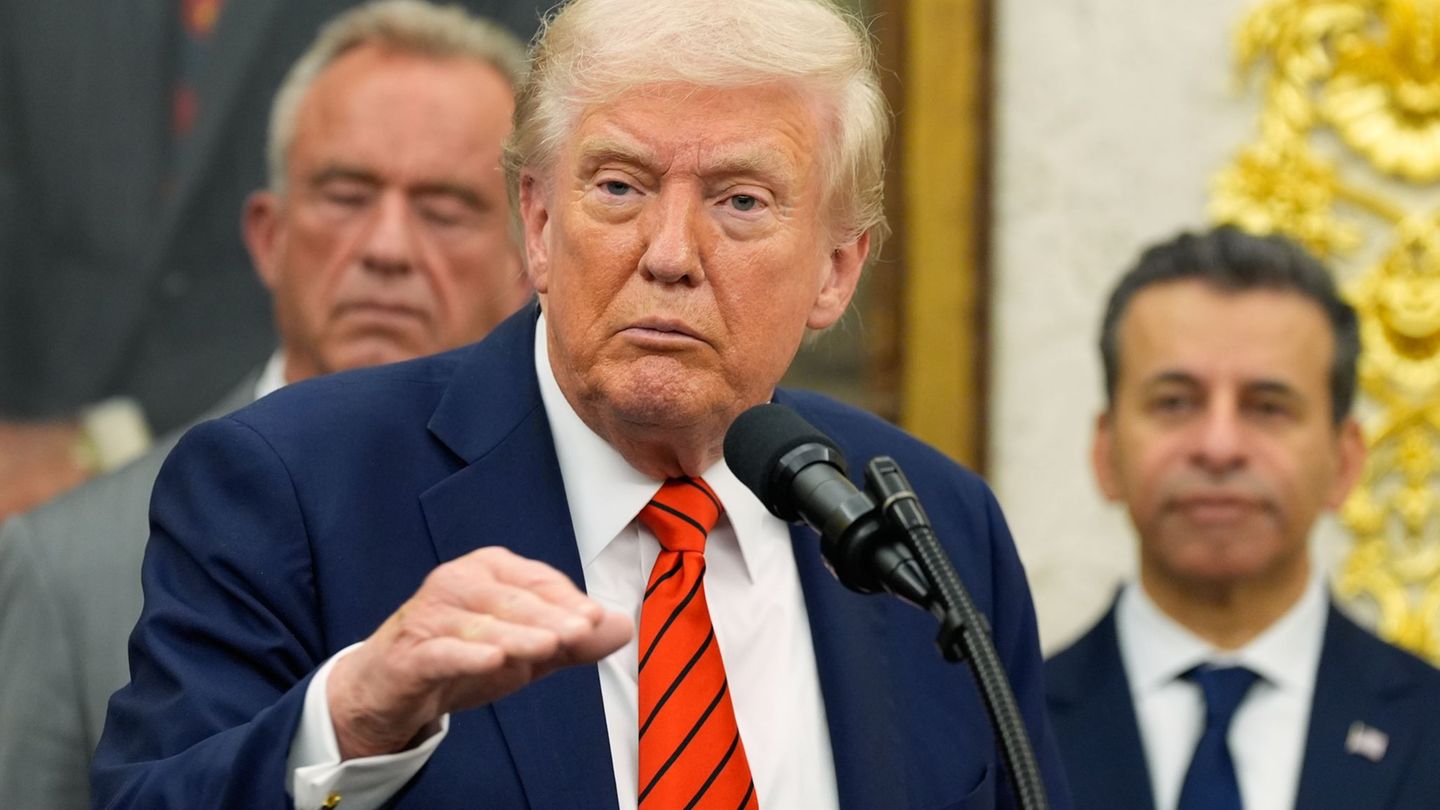Price jumps make things difficult for many consumers. The air is also getting thinner for some companies. The expectations of the concerted action are correspondingly high – but so are the differences of opinion.
Before the start of the concerted action, Chancellor Olaf Scholz (SPD) called on those involved to take joint action against inflation in Germany. Some economists and politicians demanded permanently higher wages. Other economists, on the other hand, warned of a price-wage spiral.
Scholz said in a video podcast: “We have to join hands and stick together.” The big problem that many citizens are rightly worried about at the moment is the rising prices. “And we have to act together there, too,” warned Scholz. That’s why he invited trade unions, employers, the Bundesbank and scientists to “talk about what we’re doing,” as was the case in the 1960s and 1970s. The campaign will start on Monday in the Chancellery.
The President of the German Institute for Economic Research (DIW), Marcel Fratzscher, told the German Press Agency in Berlin: “Only higher wages and social benefits can sustainably compensate for the damage to people with medium and low incomes.” One-off payments, on the other hand, are not accurate, since many do not benefit from them at all.
A week ago, plans from the Chancellery for tax-free one-off payments became known. In return, trade unions could waive part of the wage increases in collective bargaining rounds in order not to further fuel inflation, it said.
Extension of the debt brake called for
Fratzscher said one-off payments could only be temporary, but not permanent relief. “The economically and socially best way to deal with inflation is – in addition to higher wages and income – tax relief and higher social benefits for people with middle and low incomes,” said Fratzscher.
According to Fratzscher, the federal government should also decide on a package of investments for the future. The debt brake should also be suspended in 2023 – the federal government wants to comply with it again.
The “economic wise” Veronika Grimm told the dpa: “The idea of one-off payments can also backfire.” If you forego wage increases for one-off payments, they would have to be very high. “Of course, that could immediately increase demand and thus increase inflation again.”
SPD leader Saskia Esken told the newspapers of the Funke media group: “One-off payments and temporary relief measures help in the short term, but are not a long-term solution.” Prices, especially energy prices, would remain high. “As a welfare state, we therefore have to adjust benefits to rising inflation.” In addition, wages on the labor market, especially in the low-wage sector, would have to “rise significantly and permanently”.
Other possible instruments should also be on the table at the Concerted Action. This includes the social climate money proposed by Minister of Labor Hubertus Heil (SPD), according to government circles. Heil wants climate money like this once a year for single people who earn less than 4,000 euros gross per month and for married people with a total of less than 8,000 euros.
The CDU economics expert Julia Klöckner criticized that the concerted action falls under the category “If I don’t know what to do, I’ll set up a working group”. Instead, taxes and duties on energy, among other things, should be permanently reduced.
Fratzscher: wage-price spiral is a “false myth”
The CDU social wing, on the other hand, demanded: “VAT on basic foods, which have become up to 40 percent more expensive, must be temporarily reduced.” A bag of chips shouldn’t be cheaper than carrot juice, the newspapers of the Funke media group quote a paper from the workers’ wing CDA.
According to the “economic wise man” Achim Truger, the concerted action can help to prevent an imminent recession in Germany. In terms of content, it is about “that the unions do not make excessive wage demands so that there is no price-wage spiral,” he told the Bayern media group. Fratzscher, on the other hand, said that the wage-price spiral was a “false myth”. Both Truger and Fratzscher demanded more collective agreements from employers.
The President of the Association of German Chambers of Industry and Commerce, Peter Adrian, told the dpa that monetary policy and wage developments are important. However, he attributed the current price spiral primarily to cost increases in energy, raw materials and bottlenecks in supply chains. “We must therefore primarily address measures that expand these bottlenecks on the supply side.” This included speeding up the approval process. “In view of the price explosion, every extra government burden and superfluous regulation that can be eliminated is a helpful relief.”
Source: Stern
Jane Stock is a technology author, who has written for 24 Hours World. She writes about the latest in technology news and trends, and is always on the lookout for new and innovative ways to improve his audience’s experience.




